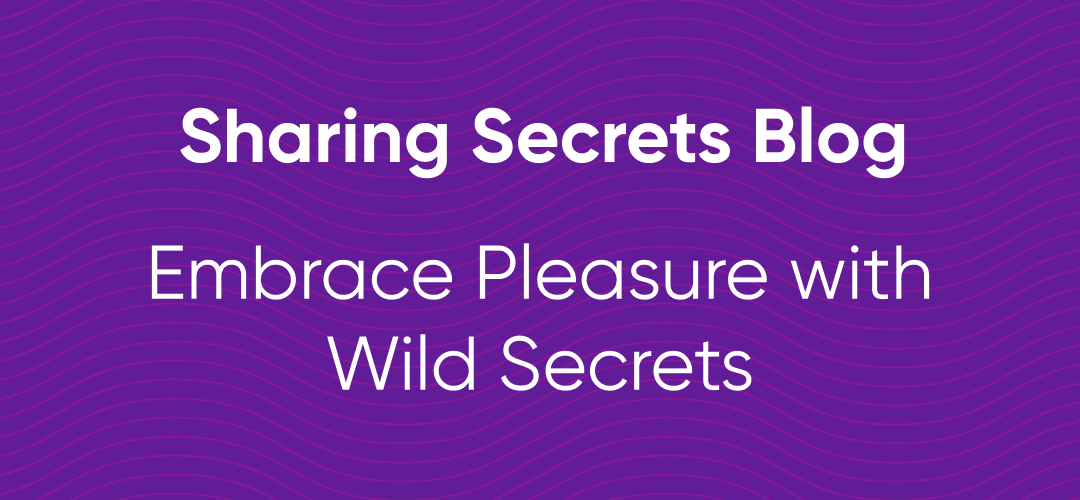Free Shipping over $69
Discreet and fast delivery
Free gift over $100+
Rewards program
Best price guarantee
Understanding ‘The Ick’ And What It Means For Our Love Lives
We’ve all been there. One moment you are falling head over heels for your crush, and the next, you feel repulsed by them chasing after a ping pong ball. Suddenly, your intense attraction and interest in that person disappears. This is the ick.
This feeling washes over you almost instantaneously and likely, has no surface-level logic behind it. This phenomenon hits quickly and without warning. Whilst it makes complete sense to you, outsiders may view this as absurd or may notice a degree of resistance to connection.
If you haven’t seen Nobody Wants This on Netflix, go watch it. It’s a relatable take on modern day dating and as a counselling sexologist, I couldn’t resist weighing in on this fascinating topic. I can confirm the show provides a great example of healthy relationship behaviours. And how often do we see those?
The ick in real life
For me, it was his belt buckle. Actually, it was his entire outfit. The mismatched style activated the ick, despite his good looks, kind heart and ambitious personality. The day he decided to wear a cowboy belt buckle with a pair of chinos, dress boots and fitted graphic t-shirt, was the day I checked out emotionally.
Just like Morgan in the show, my friend – let’s call her Katie – saw the ick in my face and flat out asked him “what’s with the belt buckle?” And that relationship fizzled out soon after.
The problem with the ick

When we discover an ick it is all too common to assume instantly that the relationship, attraction or intimacy is done.
Unlike me, Joanne and Noah go rogue and challenge our usual thought process about the ick. Noah holds Joanne accountable for her reaction by listing what he noticed in her behaviour. He then acknowledges Joanne’s unique stressors in her life, and reassures her of his feelings and intentions. This approach to navigating Joanne’s ick, allows her to feel heard and understood. It also allows her space to process feelings for Noah that aren’t always positive; this lets Joanne know she can really like Noah whilst also occasionally experiencing feelings of discomfort or frustration in a healthy way. The two manage to openly discuss the ick and even incorporate a touch of playfulness and humour.
Navigating the ick
Unfortunately, many of us avoid digging deeper and questioning the ick. Instead of reflecting on what it might reveal about us, we let it sabotage a promising connection – whether it’s the way someone chases a ping pong ball or, in my friend Katie’s case, how they open the fridge. But what if the ick isn’t always about them? By leaning into these moments, we can uncover whether it’s a genuine dealbreaker or simply an opportunity for self-awareness.
Firstly, you need to make an assessment if your ick is more than pet peeve or a turn off. And we all have those! The way you can differentiate a turn off from an ick is based on logic. Don’t like them because they smoke? This is a turn off. Their behaviour doesn’t align with your values. This makes sense. Feeling disgusted or embarrassed by them because of how they walk? This doesn’t make a lot of sense and could potentially be an ick.
Secondly, you need to consider that the ick is protective mechanism from intimacy and closeness within dating and relationships. This is a strategy you have developed to assist you in reducing your attachment to someone when you are wanting out. The less you are interested in them, the less it will hurt you.
Thirdly, ask yourself why you want out? Why do you need to protect yourself from intimacy? There are a few major things the ick could be protecting you from which is potential rejection, perceived relationship failures, or fear of someone getting to know the real you.
Building healthy, fulfilling relationships
When you feel the ick, take some time for self-reflection. Do you often develop an ick around the same time into dating someone? Is it even a valid concern? Like Joanne, I encourage you to sit with the discomfort, challenge yourself and be aware of your judgements. If you are simply avoiding your emotions, you may want to challenge yourself to be more emotionally available by:
- Practice expressing your emotions
- Practice having vulnerable conversations
- Take responsibility for your actions
- Practice consistency in your communication
Aside from self-reflection, practice dating mindfully. When you are newly dating go slow. It is common for people to project an idealised version of the other onto them. Meaning, you have made a fantasy in your mind about who they are and who you could be together. As time passes, and you truly learn about them, you may notice there is a gap between who you imagined them to be, and who they actually are. You notice imperfections, icks. A simple way of navigating these major icks, is to simply slow down the dating process. Go on a date once a week and implement some healthy boundaries for yourself. This way you can get to know the real and authentic them better and reduce your own projections.
Whilst this approach to dating doesn’t provide as many funny stories (pregooooooo!), it does increase the likelihood of genuine connections free of icks.
Want more Nobody Wants This? read Dildos and Dildon’ts next!
















